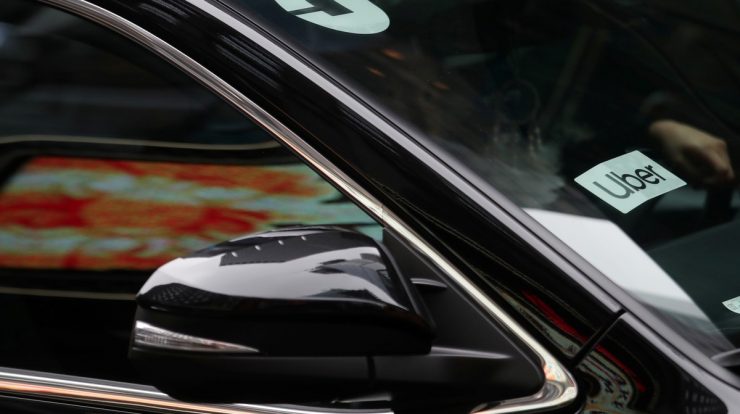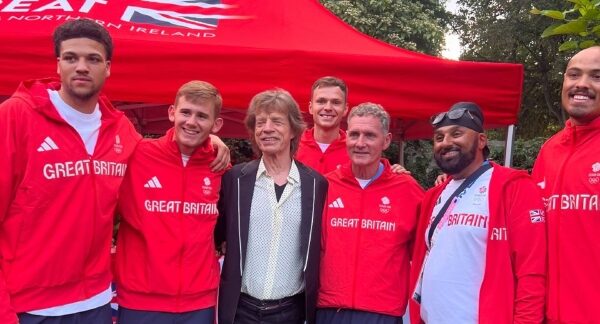
Uber announced Tuesday (16) that it will do so Grant work rights to all UK registered drivers of more than 70,000. The decision comes after the tech giant lost a battle in the British Supreme Court in February.
As of Wednesday (17), Drivers are entitled to minimum wages and paid holidays, which is unprecedented in the world for the company.
In February, Uber said the court ruling would not apply to all current drivers in the UK, but changed its stance.
“This comes on the heels of a recent decision by the UK Supreme Court, which provides a clearer pathway to a model that grants drivers rights to put workers while still allowing them to work with flexibility,” Uber said on Tuesday.
How was the lawsuit filed against Uber in the UK?
In a lawsuit filed by two drivers, the London Labor Court ruled in 2016 that the company had significant control over them and therefore should not be considered self-employed.
The company has appealed, and in 2018, the court reconfirmed the labor guarantee between Uber and drivers in the UK.
In an appeal ruling in February 2021, the Supreme Court upheld the decision and ruled that a group of drivers were entitled to work benefits, such as a minimum wage.
Will the drivers be workers or employees?
The British High Court ruled that drivers can be considered “workers” and thus receive corresponding social benefits.
British law distinguishes between the status of “workers”, who can receive a minimum wage and other benefits, and that of “employees”, strictly speaking, who have an appropriate employment contract.
What will drivers get?
Uber drivers in the UK will receive at least a minimum wage and are entitled to paid vacation leave and a retirement plan to which the company contributes.
The minimum wage is £ 8.72 ($ 12.12) an hour in the UK, and is expected to rise to £ 8.91 in April, according to information from AFP.
An Uber driver earns, on average, £ 17 an hour in London and £ 14 an hour in the rest of the country.
Are there similar processes elsewhere?
Uber is facing similar operations in the US and even Brazil.
See, in full, Uber’s position on operations in Brazil:
“In recent years, the various labor courts have built solid jurisprudence confirming the absence of a work relationship between Uber and the two drivers, indicating the absence of cost, habitability, personality and dependency requirements, which are requirements that will form the employment link.
Across the country, there are already more than 800 decisions from regional and labor courts in this regard, and there is no unified decision outlining the registration of a partner driver as an employee of Uber.
Partner drivers aren’t hiring or providing services to Uber: they are independent professionals who hire the digital brokerage technology that the company offers through the app.
Drivers freely choose the days and times to use the app, whether they accept the trips or not, and even after that, there’s still a possibility to cancel.
There are no goals to be achieved, there is no minimum number of trips, there is no boss to oversee the service, there is no obligation of exclusivity in the appointment of the company and there is no determination of compliance with the minimum number of hours.
In the last 2/3 days, and for the third time, TST confirmed that there is no working relationship between Uber and its driver partners. Unanimously, the fourth committee of the court rejected the appeal of the independent driver who tried to reverse the TRT-MG decision who had not already recognized the employment application.
The rapporteur of the process, Minister Ives Gandra, considered that drivers who use Uber’s income-generating platform have independence and flexibility, requirements that do not comply with the bond, given that there is “sufficient independence for the driver to choose the day, time and work format, the ability to close the application at any time and as long as it deems necessary.” , Without any connection to the goals set by Uber. ”
A similar understanding has already been adopted in two other trials regarding a transatlantic money transfer in 2020, in February and September, and also by the High Court of Justice in the 2019 trial.
Watch TECHNOLOGY videos on the G1

“Lifelong web fan. Incurable internet junkie. Avid bacon guru. Social media geek. Reader. Freelance food scholar.”





